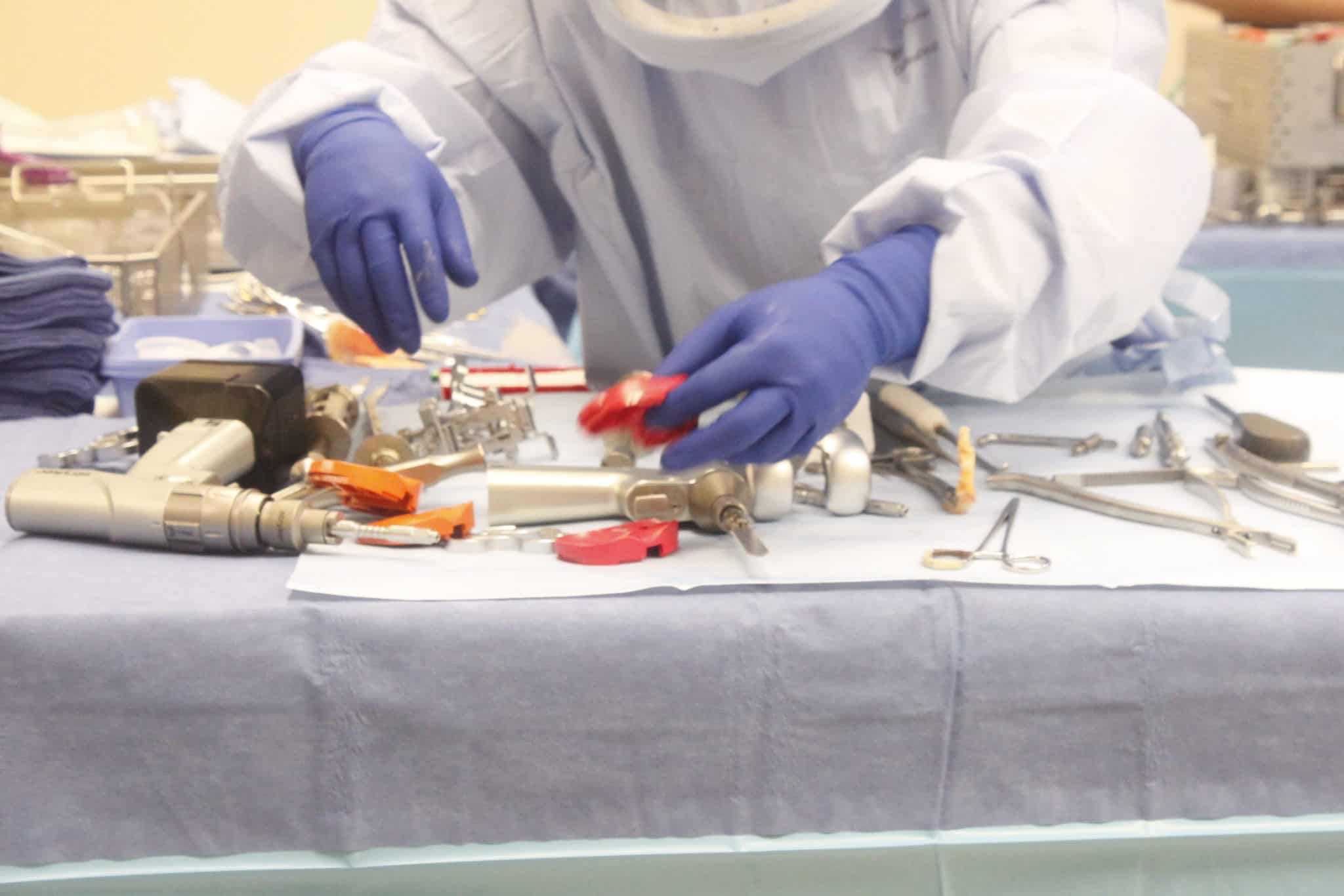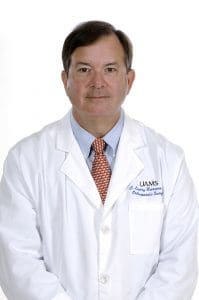Surgeries Resume, Clinics Reopen, Care Remains
| style="margin: 12.0pt 0in 12.0pt 0in;">While all clinics are now open at UAMS and elective surgeries have resumed, patient safety remains the number one priority for health care professionals.
All patients are screened before coming into the office or clinic areas. Health care professionals, patients and staff all wear masks and keep a six-foot distance between themselves whenever possible.
“We’re back at full strength. Our operating rooms are full but things are different,” said C. Lowry Barnes, M.D., chair of the College of Medicine’s Department of Orthopaedic Surgery. “Patients are being tested for COVID-19 two days before their procedures. We’re not allowing visitors, which cuts down on the traffic and risks for infection.”
Jim Fleming, 58, of Dallas had a hip surgery in January and was scheduled to have his other hip replaced in April. Because his surgery was elective, it was postponed .
Fleming works as a salesperson in technology and real estate environments. He says his pain began about a year before his surgery and became progressively worse. He knew about Dr. Barnes from a close friend who happened to be a retired orthopaedic surgeon.
“He said, ‘If I were having hip replacement surgery, I would go to Dr. Barnes,’” Fleming said.
Fleming has a home in Heber Springs and opted to stay there for a few weeks to prevent travel and potential exposure. He stayed in contact with Barnes’ office and kept abreast of developments in the news.
On May 22, he had surgery on his second hip.
“I’m doing well. I’m in no pain, but I’m still on a walker for a while longer,” Fleming said. “After my first surgery the pain became a lot more manageable. I look forward to playing golf again.”
For patients who are still apprehensive about going to a healthcare facility, Barnes says it’s very important to continue their care.
“If you have a chronic condition that goes untreated, it can become an acute problem that may require hospitalization,” Barnes said. “That is something that can be avoided with routine care. We’ve made the changes we need to make to care for our patients. It looks different, but it’s all for the safety of everyone. Patients can feel content knowing we’ve taken all the precautions and they can expect to have an experience that meets and exceeds their needs.”

